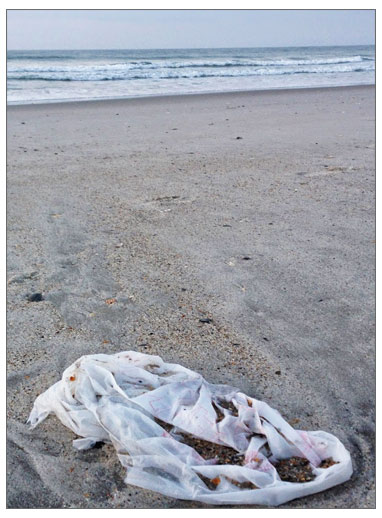The North Carolina General Assembly will convene in a special two or three day session today to address a number of outstanding issues and potential veto overrides, which may include a bill that repeals the Outer Banks plastic bag ban.
House Bill 56, which provided $435,000 out of $2.6 million requested to deal with a pollutant called GenX in the Cape Fear area, also included several unrelated environmental changes such as the repeal of the plastic bag ban on the Outer Banks. The repeal takes up just one line of the bill that reads “SECTION 10.(a) Part 2G of Article 9 of Chapter 130A of the General Statutes is repealed.”
The bill was passed by the North Carolina House and Senate at the end of August, but was vetoed by Governor Roy Cooper on September 21.
In a statement, Governor Cooper called the legislation “cynical” and noted that it “…provides no resources to the state agencies charged with protecting drinking water and preventing illegal chemicals from being discharged into our rivers. It gives the impression of action while allowing the long-term problem to fester. And it unnecessarily rolls back other environmental protections for landfills, river basins, and our beaches.”
The 2009 plastic bag repeal ban was the brainchild of then-Senate President Pro Tem Marc Basnight of Dare County as a way to cut down on litter, as well as the deaths of offshore sea turtles which often pay a visit to the Outer Banks to lay their eggs along the seashore.
The ban requires stores to use paper bags, and also to provide a $.05 refund per bag for customers who bring their own reusable bags to an individual store.
The North Carolina Retail Merchants Association supported the repeal, but local organizations including the Dare County Board of Commissioners (BOC) and the Outer Banks Chamber of Commerce have both publicly spoken out against repealing the ban.
There is no guarantee that an override of the veto will be discussed in the brief early October session, but an email last week from House Speaker Tim Moore (R-Kings Mountain) to other GOP members of the House listed roughly a dozen items to be considered, which included House Bill 56.
In North Carolina, if the Governor vetoes a bill, the bill is returned to the original house where 3/5 of present and voting members can vote to override the veto. If the original house votes to override the veto, the bill is sent to the second house where 3/5 of present and voting members must also vote to override the veto before the bill can become law.
In August, House Bill 56 passed the senate with a vote of 29 to 10, and it passed the house 61-44.
For the complete details of House Bill 56, including recent activity, refer to http://www.ncleg.net/gascripts/BillLookUp/BillLookUp.pl?Session=2017&BillID=H56&submitButton=Go.









